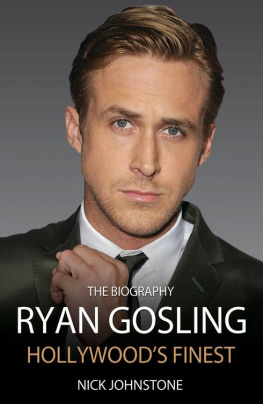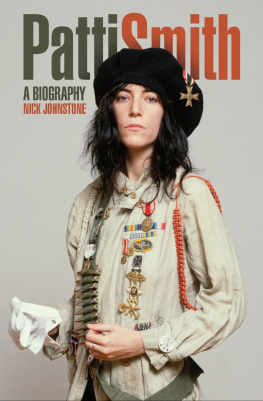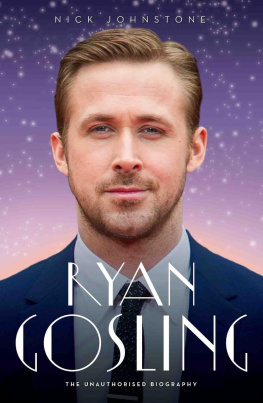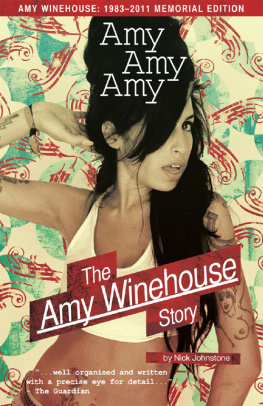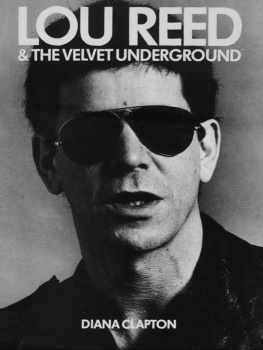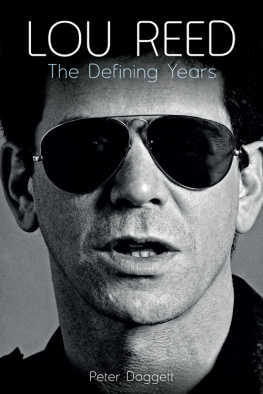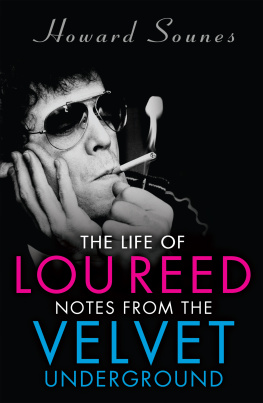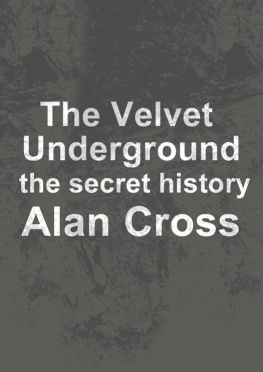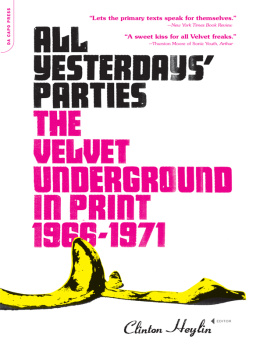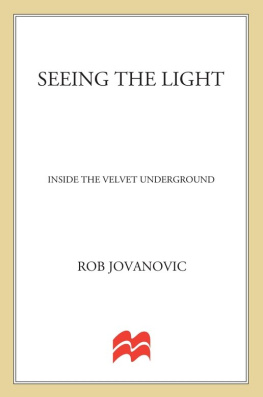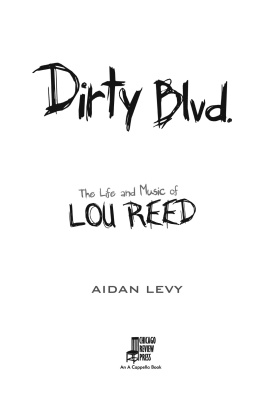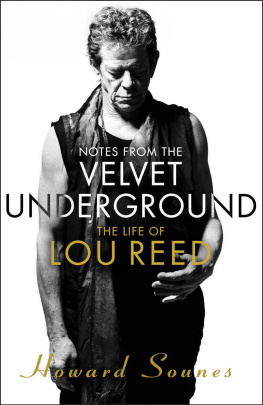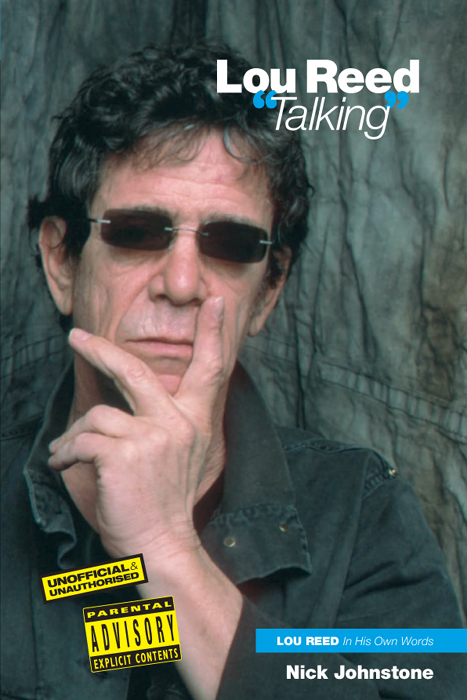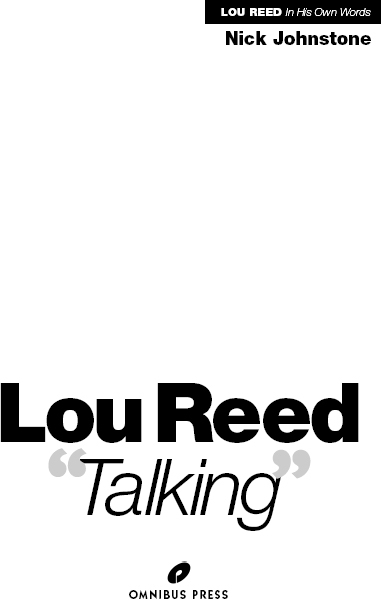
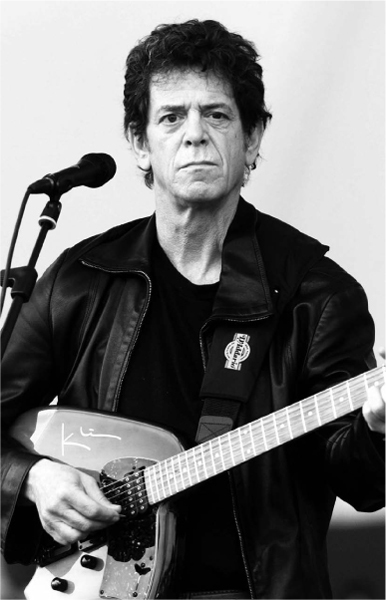
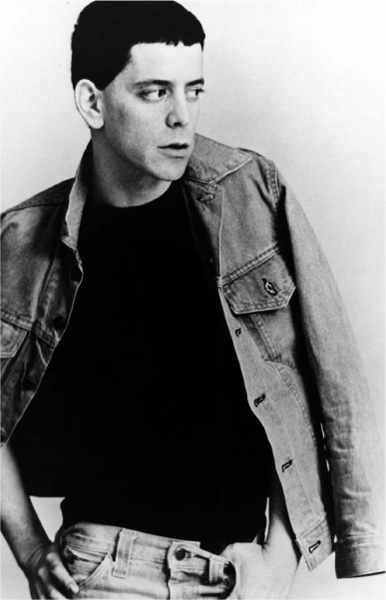
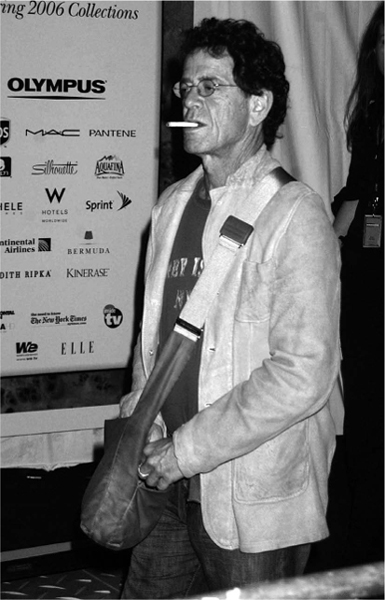
Lou Reed is to New York what Mark Twain is to Dublin. BONO 2004
Lou Reed is a completely depraved pervert and pathetic death dwarf and everything else you want to think he is. Lou Reed is the guy that gave dignity and poetry and rock n roll to smack, speed, homosexuality, sadomasochism, murder, misogyny, stumblebum passivity and suicide. LESTER BANGS 1975
Over a forty year career, Lou Reed has rhythmically burned brightly and burned out. Writing always about himself as a microcosm of his beloved New York City, Reed is the consummate New York artist. A rigidly expert guitar player, in the rough hewn, stripped down, three chord brilliant manner of Keith Richards, he has alternately confounded and delighted critics and fans, his eclectic body of work to date a bombastic, erratic zig-zag across the face of rock n roll. Today, hes in his sixties and still going strong, a survivor who has proudly lived the rock n roll lifestyle to the hilt and lived to tell the tale, documenting along the way each skid off the road with relish, precision, a thumping rock beat and that instantly recognisable Lou Reed talk-sing voice.
Introduction
The Lou Reed story starts on March 2, 1942 when he was born Lewis Alan Reed to a Jewish New York family at Beth El Hospital in Brooklyn. His father, Sidney George Reed, was a tax accountant. His mother Toby Futterman Reed, a one-time beauty queen turned housewife and doting mother. When Lewis was five, the Reeds had a second child, a daughter this time, who they named Elizabeth. In 1953, the family moved from their apartment in Brooklyn to a house in Freeport, Long Island. After graduating from Carolyn G. Atkinson Elementary, Lewis started at Freeport High School in 1956. I started out in the Brooklyn Public School System and have hated all forms of school and authority ever since, he later said of those years. Infatuated with the emerging rock n roll sounds on the radio, Lewis took to calling himself Lou, learned to play guitar, started writing songs and formed a band in 1954. He released his first single, So Blue, a year later.
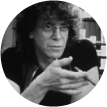
Concurrent to discovering rock n roll as an outlet from the stifling restrictions of suburbia, Lou also found himself passing through emotional turbulence above and beyond the usual clichd adolescent turmoil. He raged explosively against his parents, rejecting their values. Prone to wild mood swings that rocked the Reed household, he also found himself increasingly attracted to the same sex. In response, his parents sent him for psychiatric evaluation at the Creedmore State Psychiatric Hospital. A treatment plan -electro shock treatment three times a week for eight weeks -was designed to cure Lou of his erratic moods and homosexual desires. The effects were devastating, as he later explained: You cant read a book because you get to page seventeen and you have to go right back to page one again. Or if you put the book down for an hour and went back to pick up where you started, you didnt remember the pages you read. You had to start all over. If you walked around the block, you forgot where you were. His fury at his parents for sanctioning this barbaric treatment was eventually given vent through the song Kill Your Sons, a key track on the 1974 album Sally Cant Dance.
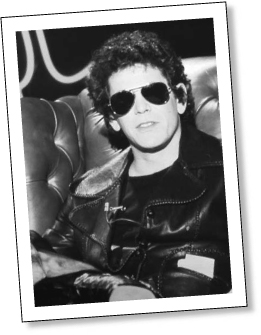
In Autumn 1959, Lou enrolled at NYU, the campus close to Payne Whitney psychiatric clinic, where he was still undergoing shock treatments, being treated with tranquilisers and meeting with a psychiatrist three times a week. By spring 1960, Lou had dropped out of NYU and transferred to Syracuse University in Upstate New York, where he immersed himself in philosophy: I was very into Hegel, Sartre, Kierkergaard. After you finish reading Kierkergaard, you feel like something horrible has happened to you - fear and nothing. Thats where I was coming from. He also discovered Beat writers like Allen Ginsberg, Jack Kerouac and William Burroughs, all of whose writing struck a chord. Music was still his everything though. Lou managed to hustle his way into getting his own show on the college radio station, where the playlist promoted his eclectic tastes: I was a very big fan of Ornette Coleman, Cecil Taylor, Archie Shepp. Then James Brown, the doo-wop groups, and rockabilly.
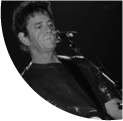
Resolutely a loner and outsider, Lou devoted his time to exploring black music and tentatively dating girls. His first serious girlfriend was Shelley Albin. Not that this put an end to his interest in the local gay scene: I felt very bad about it because I had a girlfriend and I was always going out on the side. During this time, he met a fellow campus music enthusiast - Sterling Morrison - and discovered an appetite for drugs and thrill-seeking - three discoveries that would define the years to come.
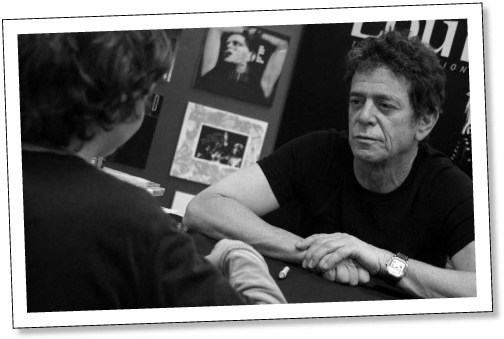
Once had settled at Syracuse, three further significant things happened. One, Lou formed a band called LA & The Eldorados and knew right away that playing rock n roll gave him a supreme purpose. Two, he met his mentor - a drug and drink addled poet called Delmore Schwartz who had stumbled on campus to teach Creative Writing. Charismatic, doomed, tragic, Lou immediately fell under Schwartz spell. The sozzled bard taught Lou about literature and decadent living and under his influence, Lou further experimented with drugs. According to Victor Bockris biography, Lou Reed, at this time, Lou was flirting in particular with LSD and heroin. Three, he saw a concert on campus by a young verbose folksinger called Bob Dylan and stood in the crowd, mesmerised, knowing this was a pathway he was destined to follow. Then, in June 1964, as Lou graduated from Syracuse with a Bachelor of Arts in Literature, he fell violently sick with a dose of hepatitus - which he claimed to have picked up by needle-sharing. Moving back home, he successfully dodged the draft and fought off his parents insistence that he join the family accounting business. Instead, Lou took a backroom job writing pop songs for Pickwick International, a job that lasted from September 1964 until February 1965.
During this gun-for-hire era, Lou penned and recorded a single called The Ostrich for a make-believe band called The Primitives. When Pickwick received calls asking for the band to perform the song, they told Lou that they needed to assemble a makeshift band who could back him for promotional appearances. In their endeavours to create a phantom band, Lou was introduced to a student of avantgarde music, John Cale, a young Welshman decamped to New York, presently in the employ of LaMonte Youngs Theater Of Eternal Music. Although The Ostrich failed to materialise into a hit, thus rendering The Primitives defunct, Lou and Cale began hanging out, striking up a friendship and musical partnership. Under Cales influence, Lou quit Pickwick and the odd couple concentrated on creating a new kind of music, one that married Lous love of rock n roll to Cales love of all things avant garde to the gritty literary musings of the Beat writers.


